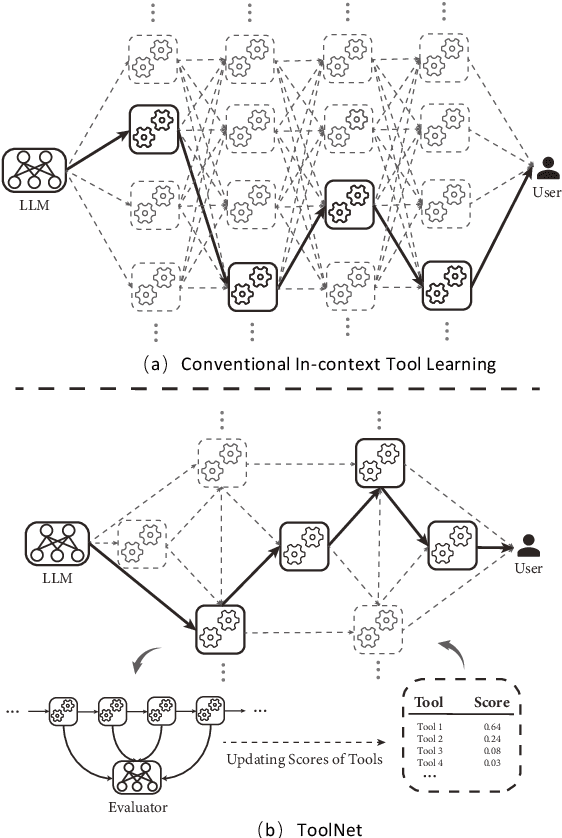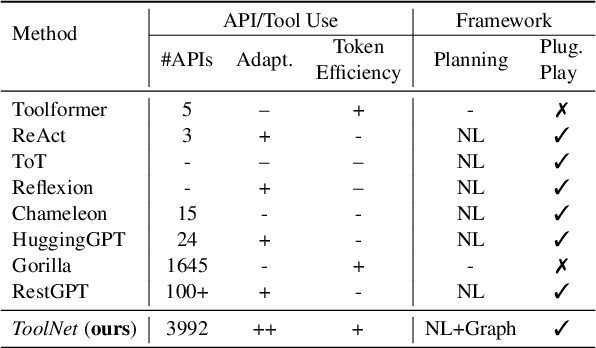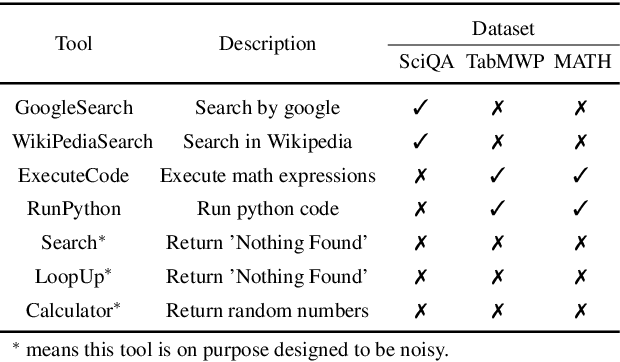ToolNet: Connecting Large Language Models with Massive Tools via Tool Graph
Paper and Code
Feb 29, 2024



While achieving remarkable progress in a broad range of tasks, large language models (LLMs) remain significantly limited in properly using massive external tools. Existing in-context learning approaches simply format tools into a list of plain text descriptions and input them to LLMs, from which, LLMs generate a sequence of tool calls to solve problems step by step. Such a paradigm ignores the intrinsic dependency between tools and offloads all reasoning loads to LLMs, making them restricted to a limited number of specifically designed tools. It thus remains challenging for LLMs to operate on a library of massive tools, casting a great limitation when confronted with real-world scenarios. This paper proposes ToolNet, a plug-and-play framework that scales up the number of tools to thousands with a moderate increase in token consumption. ToolNet organizes tools into a directed graph. Each node represents a tool, and weighted edges denote tool transition. Starting from an initial tool node, an LLM navigates in the graph by iteratively choosing the next one from its successors until the task is resolved. Extensive experiments show that ToolNet can achieve impressive results in challenging multi-hop tool learning datasets and is resilient to tool failures.
 Add to Chrome
Add to Chrome Add to Firefox
Add to Firefox Add to Edge
Add to Edge